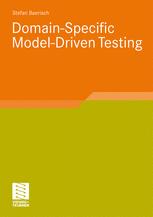

Most ebook files are in PDF format, so you can easily read them using various software such as Foxit Reader or directly on the Google Chrome browser.
Some ebook files are released by publishers in other formats such as .awz, .mobi, .epub, .fb2, etc. You may need to install specific software to read these formats on mobile/PC, such as Calibre.
Please read the tutorial at this link: https://ebookbell.com/faq
We offer FREE conversion to the popular formats you request; however, this may take some time. Therefore, right after payment, please email us, and we will try to provide the service as quickly as possible.
For some exceptional file formats or broken links (if any), please refrain from opening any disputes. Instead, email us first, and we will try to assist within a maximum of 6 hours.
EbookBell Team

5.0
110 reviewsSoftware reuse and software quality are increasingly important topics in today’s software engineering both for researchers and for practitioners. The design and implementation of tests is especially challenging when tests are conceptualized for different variants and versions of an application.
Stefan Baerisch applies a combination of feature modelling and code generation, for which he uses a model-driven approach, in order to facilitate the design of tests by non-programmers. Thus, the reuse of tests, represented by abstract test models, for different systems under tests is made possible. The approach uses code generation to allow test execution on heterogeneous and changing implementations. This combination of modelling and code generation allows for a more integrated and more efficient testing process.